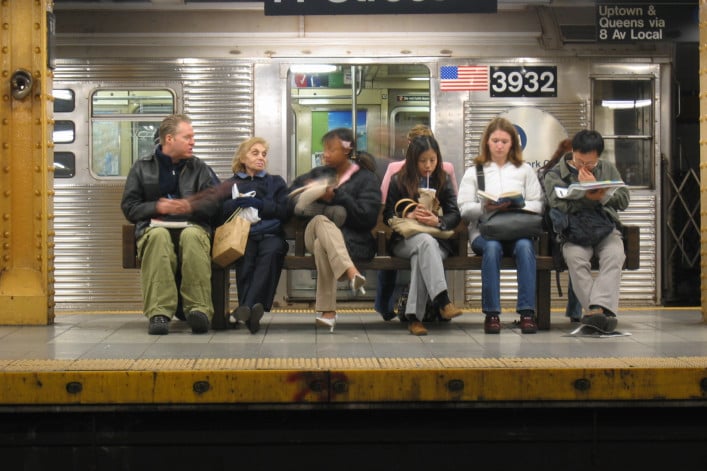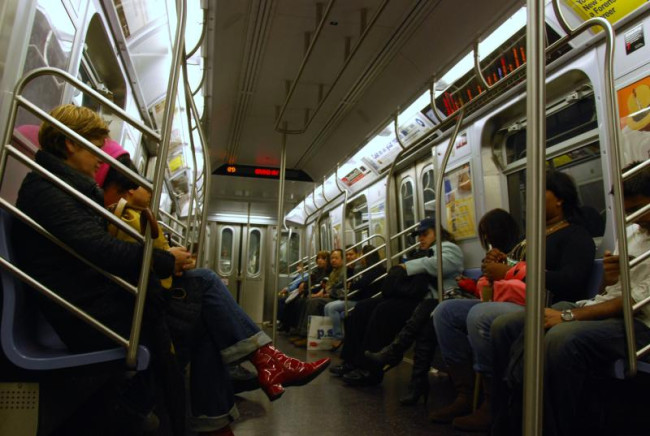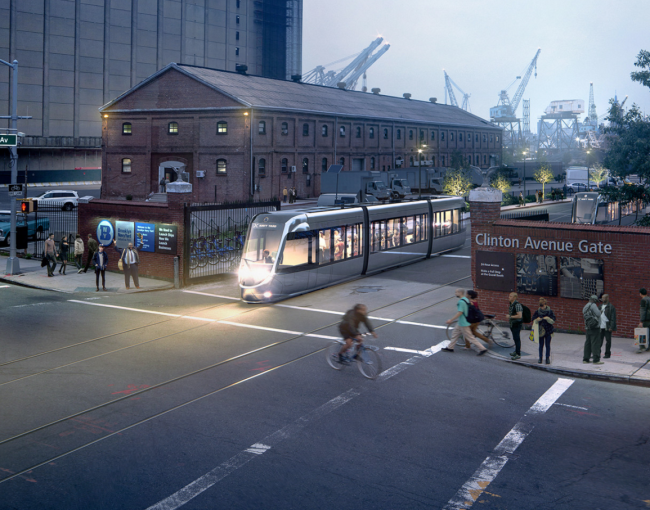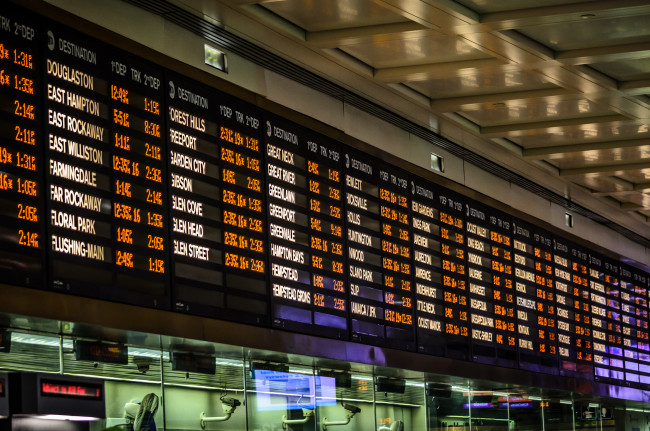Who's responsible for fixing NYC transit? A mayor's subway ride sparks debate
Mayor Bill De Blasio went for a ride on the subway on Sunday, the New York Times reports, taking the F train from Park Slope (his home pre-Gracie Mansion) to Downtown Brooklyn. And though his short trip was a smooth one, the mayor seems to be well aware that that often isn't the case these days for New Yorkers: He told the reporters who accompanied him that the responsibility lies with Governor Cuomo to "fix the problem" of an increasingly unreliable transit system.
MTA chairman Joe Lhota was quick to respond, issuing a statement calling De Blasio's words "disingenuous." And Cuomo, for his part, said last week that the city is the one to blame for the current condition of the subways, but that the state is providing funding out of a sense of "moral" obligation, writes Crain's.
This back-and-forth is one of many in what feels, for millions of New Yorkers who face daily uncertainty in whether they'll be able to get around without disruptions, delays, and derailments, like a constant passing of the buck between the city and the state.
The matter of who must take charge in fixing the subways isn't straightforward, but the Village Voice explains that the state government does seem to hold the reins: Cuomo has the authority to approve who will be appointed to the board of the MTA, which itself has not contested any of the governor's decisions since his election.
As for funding, the trouble seems to stem not from insufficient money, but rather its allocation. The MTA's Capital Plan entails a $32.5 billion investment to "renew, enhance and expand our transportation network," as the agency puts it. And according to DNA Info, when Cuomo declared a state of emergency for the subways last month, he also pledged that the state would contribute another $1 billion to the MTA.
While that certainly sounds like a promising amount of cash to repair a system now buckling under decades of neglect, another Times story breaks down the numbers, and finds that the lion's share of that money is going toward projects like electronic tolling for cars and new stations along the Second Avenue Subway line--rather than improving the obsolete signaling system frequently responsible for delays. (How often have you been stuck on a train only to hear an announcement about "signal problems"?)
Meanwhile, De Blasio's transit initiatives include his proposed BQX streetcar, which would run along the Brooklyn-Queens waterfront, and has already proven controversial, arousing fears that such a development would speed up gentrification in those neighborhoods along the East River.
So what can ordinary New Yorkers do, as they struggle with an ailing transit network while their leaders spar over who's to blame? One compelling idea put forward by transit advocates, writes the Village Voice, is to lean on the real estate developers who so shape the city, offering rezoning deals that will let them build in exchange for funds for transit improvements and subsidized fares. Perhaps with enough pressure from below, politicians at the top will be forced to act.
You Might Also Like





























